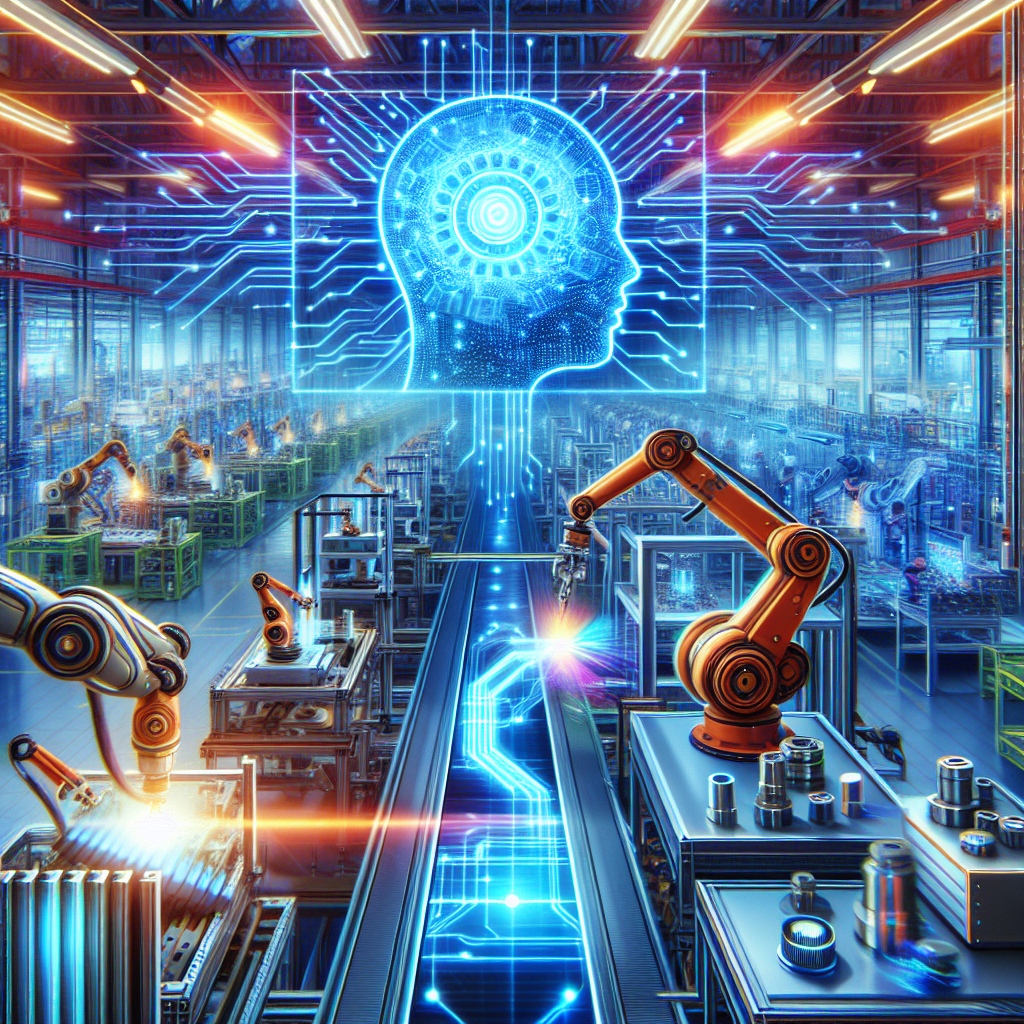In today’s fast-paced and competitive manufacturing industry, companies are constantly looking for ways to enhance efficiency and productivity while reducing costs. One of the most promising technologies that is revolutionizing the manufacturing sector is artificial intelligence (AI). By utilizing AI-powered solutions, manufacturers can automate processes, optimize production, and make data-driven decisions to improve overall efficiency.
AI in manufacturing involves the use of algorithms and machine learning techniques to analyze data, predict outcomes, and optimize processes. These technologies can be applied to various aspects of manufacturing, such as production planning, quality control, predictive maintenance, and supply chain management. By harnessing the power of AI, manufacturers can streamline operations, reduce downtime, and increase output without compromising on quality.
One of the key benefits of AI in manufacturing is its ability to automate repetitive tasks and optimize production processes. For example, AI-powered predictive maintenance systems can analyze equipment data in real-time to predict when a machine is likely to fail, allowing maintenance teams to proactively address issues before they escalate. This not only reduces downtime and maintenance costs but also extends the lifespan of equipment, leading to higher overall efficiency.
Another area where AI can significantly enhance efficiency is in production planning and scheduling. By analyzing historical data, market trends, and customer demand, AI algorithms can generate optimized production schedules that minimize lead times, reduce inventory levels, and maximize resource utilization. This enables manufacturers to produce goods more efficiently and respond quickly to changing market conditions.
AI can also be used to improve quality control processes in manufacturing. By analyzing sensor data and images, AI algorithms can detect defects in real-time and alert operators to take corrective actions. This not only reduces the likelihood of defective products reaching customers but also improves overall product quality and customer satisfaction.
Furthermore, AI can optimize supply chain management by forecasting demand, identifying potential bottlenecks, and optimizing inventory levels. By leveraging AI-powered solutions, manufacturers can reduce stockouts, minimize excess inventory, and improve overall supply chain efficiency. This allows companies to respond more effectively to fluctuations in demand and reduce the risk of supply chain disruptions.
Overall, the integration of AI in manufacturing can lead to significant improvements in efficiency, productivity, and profitability. By leveraging advanced analytics and machine learning algorithms, manufacturers can make data-driven decisions, automate processes, and optimize operations to stay competitive in today’s rapidly evolving market.
FAQs:
Q: What are some common AI applications in manufacturing?
A: Some common AI applications in manufacturing include predictive maintenance, production planning, quality control, and supply chain management. These applications leverage AI algorithms to analyze data, predict outcomes, and optimize processes to enhance efficiency and productivity.
Q: How can AI improve production planning in manufacturing?
A: AI can improve production planning by analyzing historical data, market trends, and customer demand to generate optimized production schedules that minimize lead times, reduce inventory levels, and maximize resource utilization. This allows manufacturers to produce goods more efficiently and respond quickly to changing market conditions.
Q: What are the benefits of using AI in quality control processes?
A: Using AI in quality control processes can help manufacturers detect defects in real-time, improve product quality, and reduce the likelihood of defective products reaching customers. By analyzing sensor data and images, AI algorithms can identify defects and alert operators to take corrective actions, leading to higher overall product quality and customer satisfaction.
Q: How can AI optimize supply chain management in manufacturing?
A: AI can optimize supply chain management by forecasting demand, identifying potential bottlenecks, and optimizing inventory levels. By leveraging AI-powered solutions, manufacturers can reduce stockouts, minimize excess inventory, and improve overall supply chain efficiency. This allows companies to respond more effectively to fluctuations in demand and reduce the risk of supply chain disruptions.
In conclusion, AI is a powerful tool that can revolutionize the manufacturing industry by enhancing efficiency, productivity, and profitability. By leveraging advanced analytics and machine learning algorithms, manufacturers can automate processes, optimize production, and make data-driven decisions to stay competitive in today’s fast-paced market. As AI technology continues to evolve, we can expect to see even greater advancements in manufacturing efficiency in the years to come.

